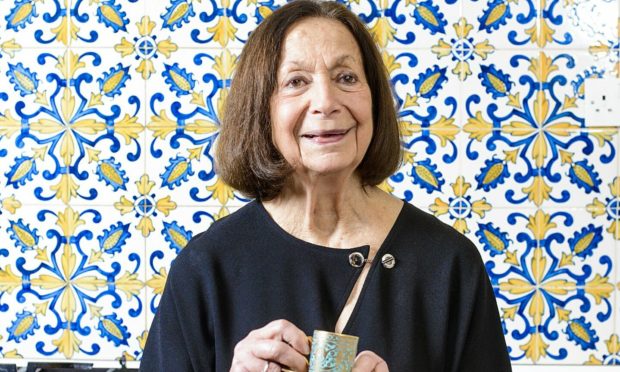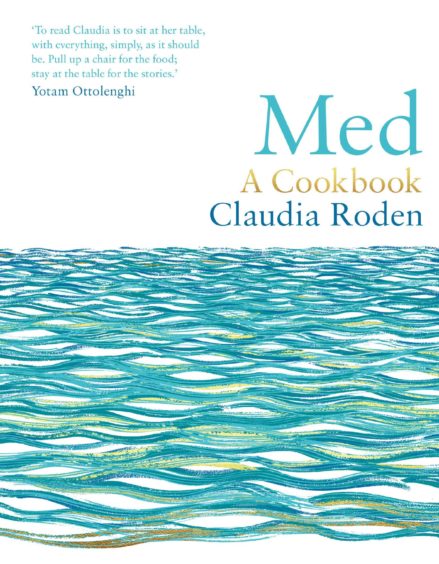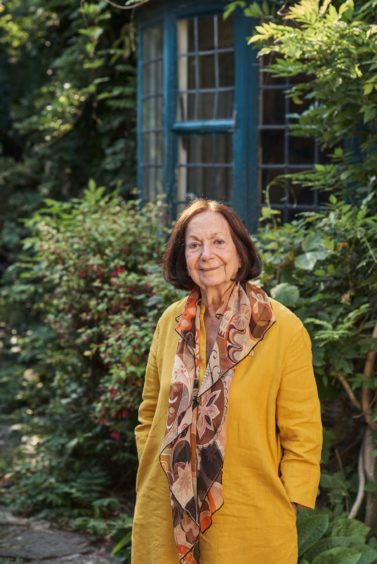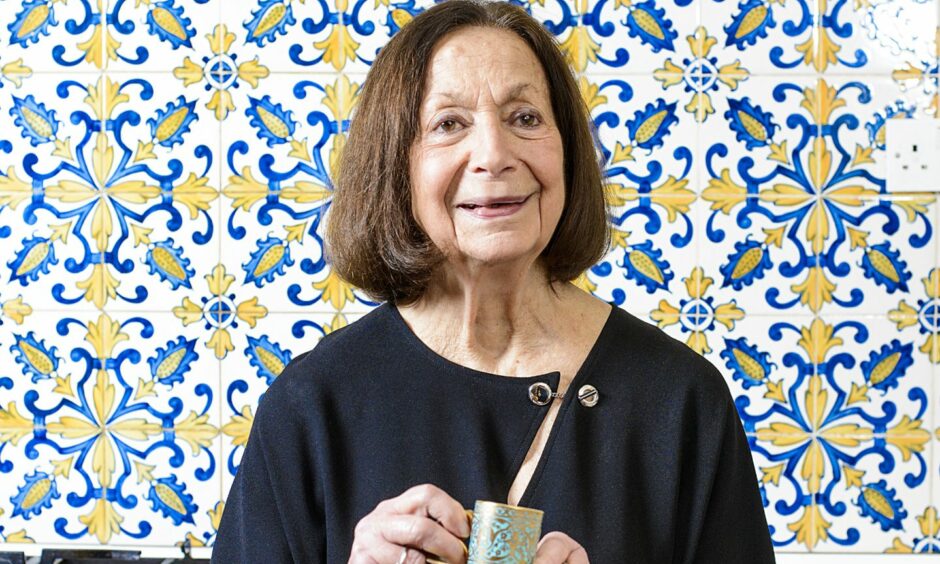Veteran food writer Claudia Roden was in disbelief that she would be reaching a major milestone birthday later this month.
“Well, I just can’t imagine that I’m 85,” the author of more than 20 cookbooks, who was born in Cairo, says while sitting in the study of her North London home, rows and rows of books lining the wall behind her.
“I thought I would forget things about my travels. But then suddenly it all comes back.
When I cook, for instance, something with fried garlic and crushed coriander, then memories of Egypt come, and I just feel happy.”
Having relocated with her parents to London in the 1950s, Claudia began her career focusing on Middle Eastern food, before turning her attention to the Mediterranean, an area she is revisiting with her latest book, called simply Med.
Love affair
Claudia’s love affair with the Mediterranean stretches back to her early childhood, when her family holidayed in Alexandria on Egypt’s coast and she found the city joyous.
She remembers: “Cairo was strict and prudish – Alexandria was the opposite. The kind of life that was there was, for me, something wonderful and happy. I just felt that the Mediterranean was where I wanted to be.”
So after her marriage of 15 years had ended in 1974, her three children had become independent in 1983, and she found herself free to travel, she decided to head back to the Mediterranean region.
“When my children left home, they all left home on the same day and I decided I would leave on the same day as well,” she says.
And so began “my way of life for decades”, crisscrossing the countries that bordered the sea, munching her way through the kitchens of southern France and Spain, the islands of Italy, as well as North Africa, Syria and Turkey.
“For me, travelling to research the food was a way to be acceptable as a woman at that time. As a woman, travelling alone was considered peculiar or rather strange and suspect. People were always asking me, ‘Where’s your husband?’ or ‘Haven’t you got children?’ That, for me, was an adventure – an adventure that never ended.”
Roaming foodie
Nowadays, lone female travellers are not such a rarity, but the kind of warm welcome
Claudia received as a roaming foodie isn’t always so easy so find.
“I found when I travelled, especially in the Mediterranean, at that time everybody was glad to speak about food.
“Everybody was there, outside in the piazza, looking for somebody to chat with and have a conversation.
“It doesn’t work anymore. Because now everybody has a mobile phone and they don’t want to be disturbed.”
Her classic cookbook Mediterranean Cookery was first published in 1987 – but three decades on, when she had reached her 80s and wanted to bring the culinary delights of the area to the next generation, she decided against venturing out on another expedition: “I didn’t have the strength to travel, and research and drive and carry a suitcase, sometimes up a hill.”
Instead, she decided to go on doing what she loved most – cooking and having friends and family round her kitchen table.
The aim of her book Med was to find the dishes mined from her memory or, as she calls them, “remembered magic moments” that gave them the most pleasure.
Five years in the making, the book was completed during the pandemic, when she enlisted the help of her three children – Simon, Nadia and Anna – and six grandchildren to test and sample recipes.
Family and friends would gather in Claudia’s garden to sample fragrant spiced rice and roasted veg, warming lentil soups, meaty Spanish stews, Arabic-inspired filo pastry parcels, steaming bowls of seafood spaghetti and more.
“When it was raining, they even came with umbrellas. I have photos of them sitting and eating under umbrellas. My garden was the only place where they could meet each other,” Claudia said.
Being separated from friends was “the hardest part” of the Covid restrictions for her, but beavering away in her kitchen and study kept her from “getting miserable”.
“I didn’t feel either lonely or unhappy,” she says, explaining she did long strolls on nearby Hampstead Heath: “Before, I felt it was a waste of time to walk. That I’ve learned, and I’m not going to unlearn.”
Looking forward
Now that lockdown has ended, the octogenarian is looking forward to celebrating her birthday with a dinner party at her daughter’s house. So will she be putting her feet up and leaving the cooking to someone else?
“We’re all going to cook for my birthday – I’m cooking as well,” Claudia says with a smile. And there’s certain to be music, chosen to evoke treasured memories from a lifetime of globe-trotting.
“When I travelled, I always bought music. In Italy, it was all Pavarotti, I would put on O Sole Mio. When I’m cooking French dishes, I’m putting on Edith Piaf and singing La Mer.
“And then I’ve got Arab music, I’ve got Spanish music… I just think cooking a dish from somewhere, it really makes you feel good. It makes you feel that place.”
Med by Claudia Roden, photography by Susan Bell, is published by Ebury Press, priced £28.
Claudia Roden’s green olive, walnut and pomegranate salad
Serves 4
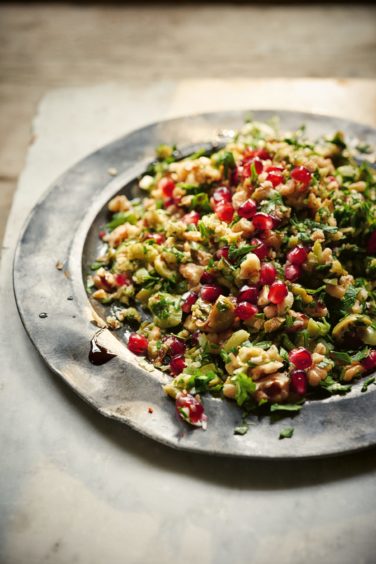
Ingredients
- 100g good-quality pitted green olives in brine, drained
- 50g walnuts
- 3 spring onions, chopped
- Bunch (25g) of flat-leaf parsley, leaves chopped
- 2 tbsp extra virgin olive oil
- 1 tbsp lemon juice
- 2 tbsp pomegranate molasses
- Salt, to taste
- Chilli flakes, to taste
- 3 tbsp pomegranate seeds
Method
- Coarsely chop the olives and walnuts, place in a serving dish and mix with the spring onions and parsley.
- In a small bowl, mix the olive oil, lemon juice and pomegranate molasses with a little salt and chilli flakes to taste. Pour over the olives and walnuts and sprinkle with pomegranate seeds.
This salad is a speciality of Gaziantep, a Turkish city on the border with Syria, famous for its gastronomy, says Claudia.
